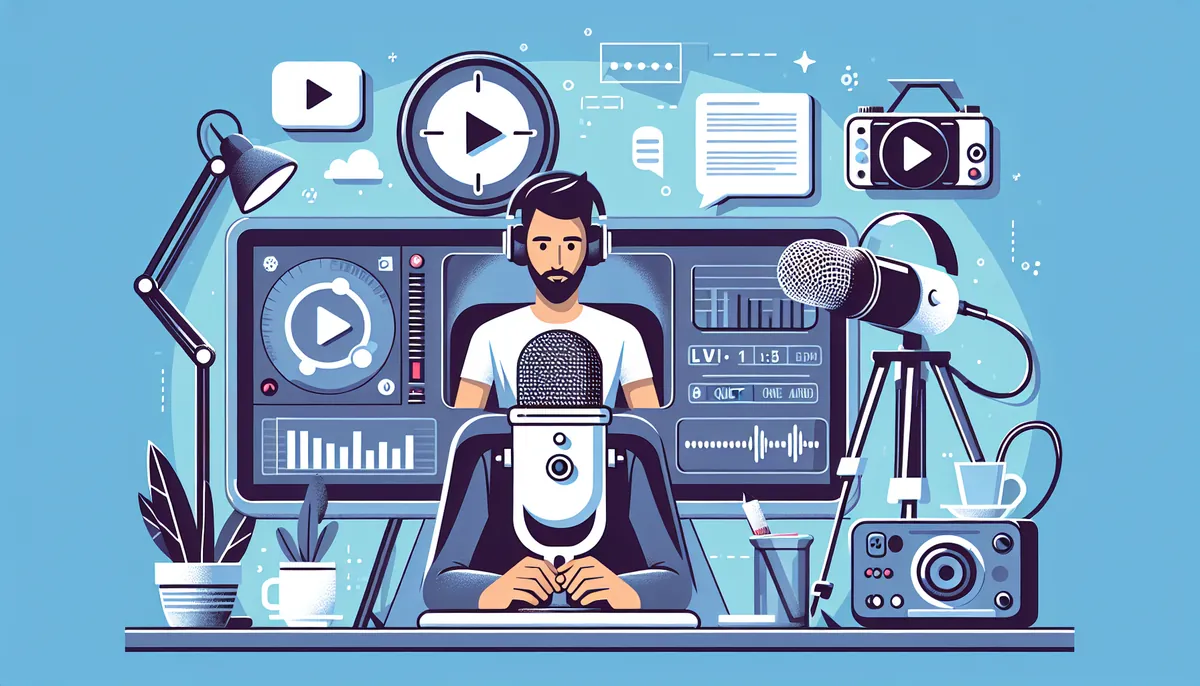Creating professional-looking content has never been more important, and mastering OBS Studio is a crucial step in that journey. Today, we’ll dive deep into advanced OBS Studio techniques and best practices that will elevate your content creation game.
Whether you’re a streamer, educator, or professional content creator, understanding how to optimize OBS Studio can make the difference between amateur-looking content and broadcast-quality productions. Building on our previous guide about creating rounded cameras in OBS Studio, we’ll explore more advanced features and optimization techniques.
Table of Contents
- Performance Optimization
- Scene Organization
- Advanced Audio Configuration
- Source Filters and Effects
- Stream Integration
- Recording Optimization
- Performance Monitoring
- Advanced Features
- Best Practices for Different Content Types
- Backup and Recovery
- Conclusion
Performance Optimization
One of the most critical aspects of using OBS Studio effectively is ensuring optimal performance. Let’s break down the key settings you need to configure:
Encoder Settings
Choosing the right encoder is crucial for your stream quality:
x264 (CPU): Best for systems with powerful processors
- Recommended for high-quality recordings
- Offers better compression at slower presets
- More CPU intensive
NVENC (NVIDIA): Ideal for NVIDIA GPU users
- Minimal impact on gaming performance
- Great for simultaneous gaming and streaming
- Quality nearly matches x264
Resolution and Frame Rate
Finding the right balance between quality and performance is essential:
- Base Resolution: Set to your monitor’s native resolution
- Output Resolution: Consider scaling to 1080p for streaming
- Frame Rate: 60fps for gaming, 30fps for standard content
Scene Organization
Proper scene organization is vital for smooth broadcasts:
- Create scene collections for different types of content
- Use nested scenes for complex layouts
- Implement hotkeys for quick scene switching
Scene Collection Examples
Gaming Stream:
- Main Game Scene
- Just Chatting Scene
- BRB Scene
- Stream Starting Soon
- Stream Ending
Professional Presentation:
- Full Screen Slides
- Picture-in-Picture Layout
- Q&A Configuration
- Break Screen
Advanced Audio Configuration
Professional audio quality can make or break your content:
Audio Monitoring
Set up proper audio monitoring:
- Configure monitoring devices
- Set up audio ducking
- Implement noise suppression
- Add compressor filters
VST Plugins
Enhance your audio with VST plugins:
- ReaFIR for noise removal
- ReaComp for compression
- ReaEQ for equalization
Source Filters and Effects
Elevate your visual quality with these essential filters:
Video Filters
Color Correction
- Adjust temperature
- Fine-tune contrast
- Optimize saturation
Chroma Key
- Set proper key color
- Adjust similarity threshold
- Fine-tune smoothness
Transition Effects
Implement professional transitions:
- Stinger transitions with alpha channel
- Smooth scene transitions
- Custom transition timing
Stream Integration
Enhance viewer engagement with integrations:
Alert Systems
- StreamElements integration
- Custom CSS animations
- Event triggers and actions
Chat Integration
- Chat overlay configuration
- Custom chat commands
- Moderator tools
Recording Optimization
Optimize your local recordings:
Recording Format
- CQP for quality-focused recording
- CBR for consistent file sizes
- Custom recording paths
Storage Management
- Implement automatic file splitting
- Set up replay buffer
- Configure automatic file cleanup
Performance Monitoring
Keep track of your system’s performance:
Stats Monitoring
- Frame time
- CPU usage
- Memory utilization
- Dropped frames
Troubleshooting Tools
- OBS Log Analyzer
- Performance History
- Debug logging
Advanced Features
Explore these powerful features:
Scripts
Implement custom scripts for:
- Automatic scene switching
- Custom animations
- Advanced triggers
Browser Sources
Enhance your streams with:
- Custom overlays
- Interactive elements
- Real-time updates
Best Practices for Different Content Types
Gaming Content
- Use Game Capture over Display Capture
- Implement stream deck integration
- Set up proper game audio mixing
Professional Presentations
- Configure multiple display captures
- Set up proper webcam positioning
- Implement smooth slide transitions
Backup and Recovery
Protect your configurations:
- Export scene collections
- Back up profiles
- Save custom assets
Conclusion
Mastering OBS Studio is an ongoing journey that requires attention to detail and regular practice. By implementing these advanced techniques and best practices, you’ll be well on your way to creating professional-quality content that stands out.
Remember to start with the basics and gradually incorporate more advanced features as you become comfortable with each element. Stay updated with OBS Studio’s latest releases and community developments to continually improve your content quality.
What advanced OBS Studio feature are you most excited to try? Share your experience in the comments below, and don’t forget to check out our guide on creating rounded cameras in OBS Studio for more specific camera configuration tips.

